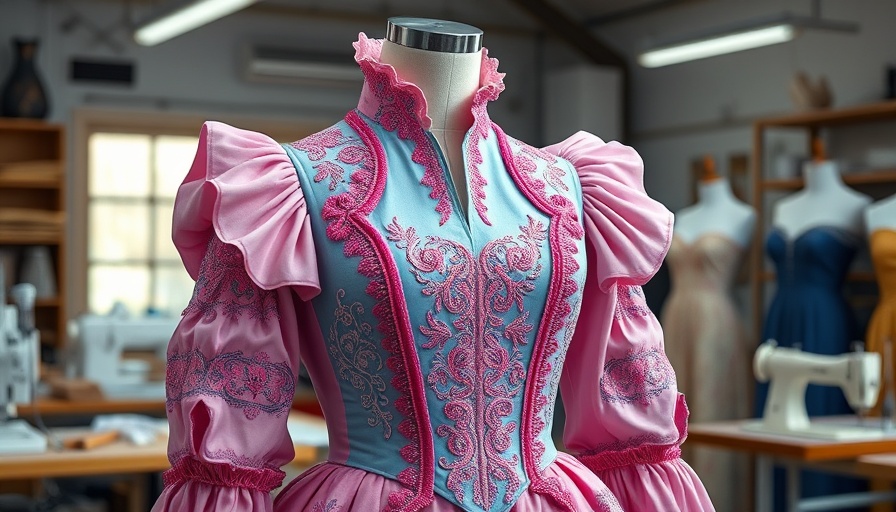
Finding Hope in the Heart of Musicals
In the vibrant world of musical theater, a few notes can transport us from our mundane realities into realms filled with hope and aspirations. One such magical moment can be captured in Annie's iconic song, "Tomorrow." This classic piece resonates not just as a catchy tune but as a powerful reminder of resilience, emphasizing the notion that a brighter day is always just around the corner.
In 'Annie: "Tomorrow" in Rehearsals | Stratford Festival 2025,' the discussion dives into the theme of hope, exploring key insights that sparked deeper analysis on our end.
The Impact of Annie's Reverberating Themes
The words of "Tomorrow" echo the sentiments of countless individuals grappling with challenges and uncertainties. It serves as both an anthem of optimism and a call to persevere during difficult times. The message is universal: each dawn presents a new opportunity to reset our hopes and dreams.
A Closer Look at Annie’s Journey
As audiences prepare for the upcoming Stratford Festival 2025 production, excitement builds around the timeless tale of Annie. Following the story of a spirited young orphan, Annie's path illustrates not just the search for family but the importance of hope and optimism even in the bleakest circumstances. Every note in "Tomorrow" reflects her unwavering belief in a better future.
Connecting Through Music: Why It Matters
Musicals like Annie amplify the human experience, encouraging connection through shared emotions and storytelling. Music transcends boundaries, making us feel understood and less alone. The show’s signature anthem reminds performers and audiences alike that hope is indeed a choice, one that can be embraced daily.
The Cultural Relevance of An Optimistic Outlook
In today's society, where challenges such as economic uncertainty and societal upheaval persist, songs like "Tomorrow" become even more poignant. They provide a refuge from the chaos and remind us to hold on to our dreams. Annie encourages us to remain steadfast, reinforcing the cultural narrative that hope can ignite change.
Behind the Curtain: What It Takes to Bring Annie to Life
As the Stratford Festival looks to breathe new life into this cherished musical, it’s important to understand the hard work that goes into every rehearsal. Just as Annie sings of perseverance, the cast and crew experience their own challenges in preparing for the show. With each rehearsal, they redefine their interpretation of hope, laughter, and the promise of tomorrow.
Further Reflections on Optimism
The act of performing Annie transcends the stage; it becomes a platform for exploration of topics like family, belonging, and brighter tomorrows. Engaging with such narratives compels audiences to reflect on their lives and the connections they hold dear. It serves as a reminder to lean into hope and to look forward, no matter how daunting life may seem.
In a world that often feels weighed down with negativity, the song "Tomorrow" captivates the spirit, urging audiences to embrace hope. As we await the Stratford Festival's rendering of Annie, let this timeless theme spark conversations about the importance of faith, resilience, and the sunny skies we yearn for in our lives. The dedication that goes into the production demonstrates that no matter the challenges faced, brighter days always await.
As you reflect on the timeless message of Annie, think about how you can cultivate your own moments of hope in daily life. Whether through creativity, connection, or simply believing in tomorrow—what steps can you take to foster optimism today?
 Add Row
Add Row  Add
Add 




Write A Comment